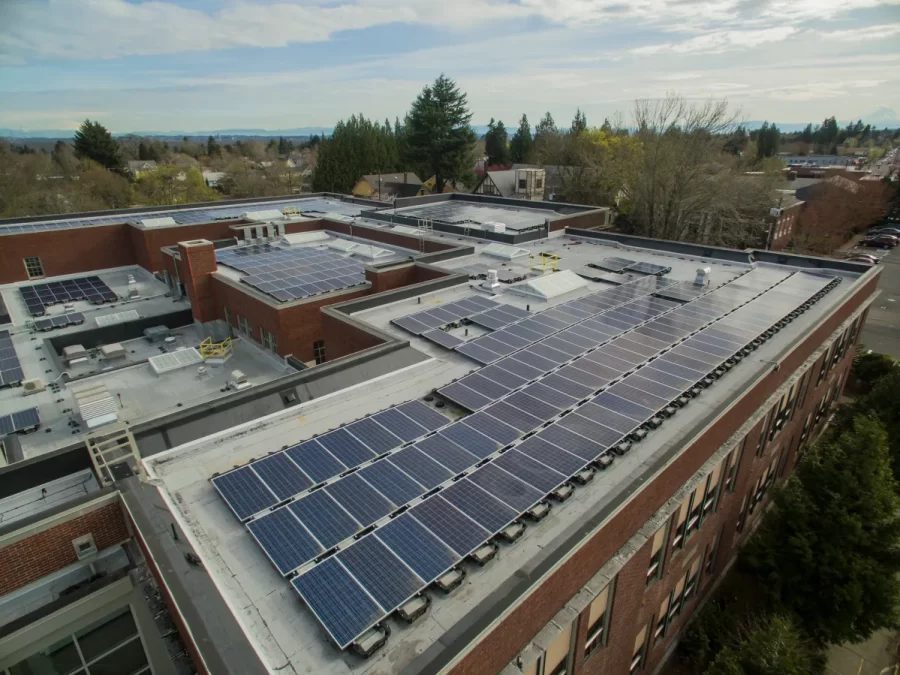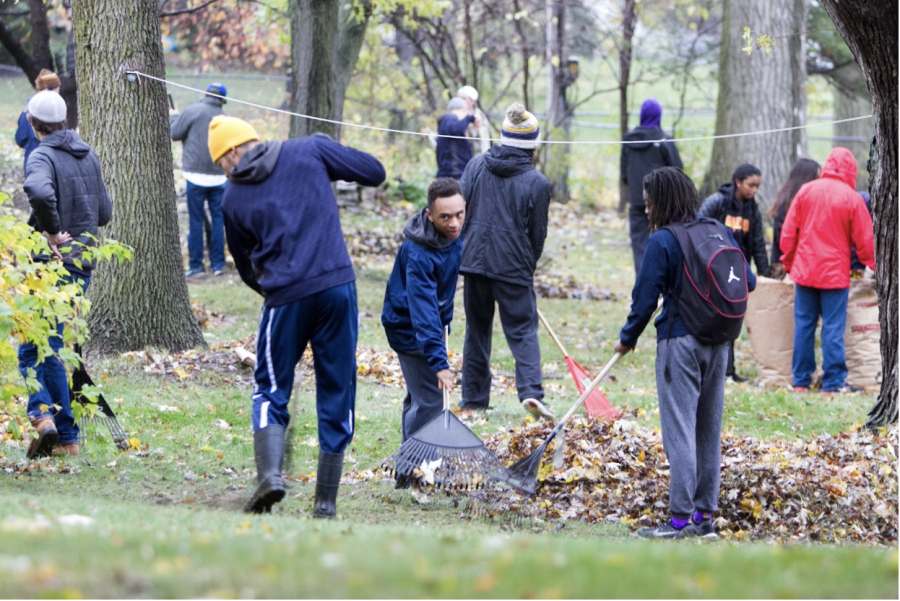It was just two days before her 21st birthday when Amara Strande passed away from a rare liver cancer on April 14th, 2023. Her cancer was caused by exposure to dangerous polyfluoroalkyl substances (PFAS)—the same chemicals she spent her final months advocating against.
A recent graduate from Tartan High School in Oakdale, Minnesota, Strande often joked with her classmates—many of whom also had cancer—about drinking the “3M cancer water.” Tartan High School is situated right next to the 3M company’s headquarters in Maplewood, Minnesota. 3M has manufactured PFAS chemicals since the 1950s and incorporated them into various products like non-stick pots and pans, food packaging containers, and umbrellas due to their useful properties like water resistance. 3M dumped PFAS into unprotected landfills around the Eastern Twin Cities metropolitan area, including in Washington County, near Oakdale. PFAS has since spread through the groundwater, leading to over 100 square miles of PFAS-contaminated groundwater in the area.
Strande was first diagnosed with cancer at 15. In her first surgery, doctors removed a 15-pound tumor in her liver. 19 surgeries later, Strande was left with her body weakened but spirit still strong. In January 2023, Avonna Starck, director of the advocacy group Clean Water Action, approached Strande, asking whether she would help pass a law banning PFAS in consumer products. Strande said yes. During her testimony in March of 2023 to the Minnesota legislature, Strande shared the harsh realities she faced as a result of PFAS: “They can’t do surgery this time. There are no more treatments to try. My life is a product of toxins.”
Certain PFAS chemicals like PFOA and PFOS have been classified as carcinogens by the EPA, but there are thousands of other PFAS, all with dangerous properties. Because these chemicals don’t degrade quickly within the human body, exposure to PFAS has been linked to chronic health problems like liver disease and high cholesterol. PFAS can also be passed during pregnancy from mother to child, meaning exposure can begin even before birth. As a result, PFAS exposure has become horrifyingly widespread. These chemicals are thought the be in the blood streams of more than 98% of Americans.
According to a 2017 study by David Sunding, an expert witness in a PFAS lawsuit against 3M, Oakdale residents who died between 2003 and 2015 were 19 percent more likely to have had cancer than Minnesotans in the surrounding area. The disproportionately high incidence of cancer in Oakdale, especially among children, led to the formation of a Tartan High School social group nicknamed “The Cancer Kids.”
Despite her declining health, Strande continued to pursue the hobbies she loved and continued attending high school. She auditioned and joined Minnesota’s Chamber Choir, where she performed at Orchestra Hall. In 2022, Strande began to record her own songs. One of them, “I Am the Strange,” serves as a powerful self-reflection on her experience as someone whose life was directly affected by PFAS and yet ignored:
How do you lose
All of your faith
Tired eyes and
Grumpy face
I can scream as loud as I can
But no one seems to hear me
Twisted and burning and rotting
I cry inside but my eyes are dry
I am the outcast
I am the strange
Music was Strande’s way of dealing with the struggles PFAS imposed on her life and also being aware of her reality. “I’m in love with life but life isn’t in love with me,” Strande wrote in her journal—a sentiment no one should ever have to believe.
Other residents of Minnesota’s Washington County have also been affected by 3M’s PFAS dumping. Jim and Judith Blackford live near Lake Elmo and used to get their drinking water from a private well. When the Blackford family called the state almost 40 years ago in 1986 to ask whether waste from the nearby landfill could make its way into their well water, they were reassured that their water was safe because the landfill was downstream from their home. Despite frequent well monitoring, 3M’s PFAS chemicals were only detected in their water in 2006. These detected chemicals were the result of a 1981 incident where the Minnesota Pollution Control Agency sprayed groundwater from a landfill into the air to remove pollutants. During this procedure, they inadvertently spread PFAS throughout the surrounding area, including into the Blackford family’s well. Still, 20 years after PFAS was detected in their water, nobody has connected the city water supply to the Blackford’s home, leaving the couple dragging heavy bottles of spring water upstairs every month. “The Blackford family has basically been abandoned by all levels of government,” Jim Blackford said in an interview with the Minnesota Reformer. “It is clear to me that they are all waiting for us to die or move away.”

Nicole Neri/Minnesota Reformer
Just two weeks after Strande’s passing, Minnesota lawmakers, spurred by the efforts of her classmates, friends, and family, passed Amara’s Law. The law bans PFAS chemicals in consumer products like carpets, cookware, dental floss, and furniture; it went into effect on January 1, 2025. This PFAS ban joins another Minnesota prohibition of dangerous chemicals in food packaging and firefighting foam which went into effect in 2024. An additional law is scheduled to go into effect in 2032, banning all products with PFAS added intentionally, except for a “currently unavoidable use.”
As a result of increased advocacy and education about PFAS, companies have begun to wind down PFAS production. Although 3M claims that their products, including those with PFAS, are “safe and effective for their intended uses,” they have pledged to end all PFAS production by the end of this year. This is a step in the right direction, but other companies still produce PFAS, continuing to contaminate the environment.

Deena Winter/Minnesota Reformer
Increased scrutiny of PFAS in the environment also led to a lawsuit filed by the State of Minnesota against 3M for the improper disposal of PFAS. 3M agreed to settle the lawsuit for $850 million in 2018, and the funds are currently being invested in drinking water and natural resource projects. For instance, Minnesota has started sampling wells in the Eastern Twin Cities’ and monitoring drinking water across the state to measure PFAS levels.
PFAS’s omnipresence and longevity in the environment has earned them the nickname of “forever chemicals.” However, there is still hope for addressing PFAS pollution, and scientists are actively researching ways to remove and destroy PFAS from the environment. New applications of other technologies previously used to fight environmental contamination like UV-C light, incineration, and advanced electrochemical processes are being reapplied to PFAS. New technologies that use sound or foam, specifically for PFAS destruction, are also being actively researched.
Although the path to eliminating PFAS from the environment and repairing the damage they’ve caused is far from over, Amara Strande’s efforts to speak out on the issue—and the law passed as a result—mark an important step in the right direction. Strande dreamed of a world where no one would have to worry about getting cancer from their drinking water and where families could live without the invisible weight of PFAS in their lives. She never got to see that world, yet her voice has made an indelible impact, shining a light on an issue so many overlook until it’s too late. Her story is a reminder of what’s at stake—and a call to action for all of us to fight for a future where no one else has to pay the same price.































